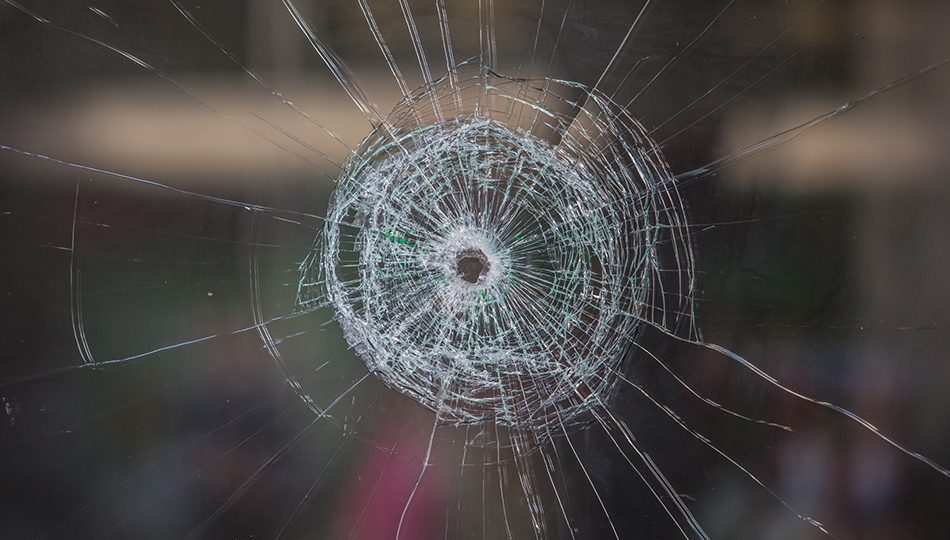
The time for holiday shopping and family get-together preparations is about to reach its summit. People are rushing to and from their vehicles with hardly a second glance at their surroundings. One distracted moment is all a criminal needs to get into your vehicle to steal your belongings, or worse, make you the victim of an assault or robbery. Situational awareness is key: be mindful of your surroundings, gravitate toward lit areas in parking lots, scan the area for any possible threat, and have a plan in mind for retreat or cover. But what happens when a law-abiding gun owner finds themselves in the sights of a criminal?
During the holiday season, many holiday shoppers are caught unaware by theft, robbery, or burglary of their vehicles. It is critical that you, as a law-abiding gun owner, understand what legal response is allowable and justified for each of these criminal actions before you find yourself in the middle of one of these terrifying incidents.
Understanding Justified Use of Force
If you carry a handgun, knowing the law on the justified use of force and deadly force to stop a crime will help you develop a plan before an incident takes place. Robbery, burglary, and theft are all too common around the holidays, and this year’s economy as a result of COVID-19 has likely made a lot of people particularly desperate. We don’t want you to become a victim, so let’s address each of these.
Theft
You walk from the store to your car, arms full of shopping bags, which you place on the ground next to you as you search for your car keys. The next thing you know, a thief has grabbed several of these bags and is running away with them! This action is classified under Texas law as “theft.” Theft is the unlawful appropriation of property with the intent to deprive the owner of that property. Generally, theft alone with no other aggravating factors may justify the use of force, but it does not justify the use of deadly force. In Texas, the law may allow a person to use deadly force to respond to theft in the nighttime. But as we all know, what is legal and what is prudent don’t always align. There is no legal presumption for this use of deadly force, and for you to be found “not guilty,” a jury must come to the conclusion that you acted reasonably. The law typically values human life over things, and it is possible (or perhaps likely) that using deadly force to respond to a theft alone will result in a criminal conviction and a prison cell.
Robbery
Let’s change our earlier scenario: This time, as you get to your car a masked man quickly approaches and yells “give me those bags or I’ll kill you!” This is what the law calls “robbery.” Robbery occurs when a perpetrator, in the course of committing theft, with the intent to take your property, intentionally, knowingly, or recklessly causes bodily injury, or intentionally or knowingly threatens or places you in fear of imminent bodily injury or death. As you can see, robbery, as opposed to theft, involves a risk of serious bodily injury or death to the victim. It is no longer just things you are protecting, but rather your life or the life of the person being robbed.
Texas law allows for the use of force or deadly force to defend against robbery or aggravated robbery. A robbery is “aggravated” when the perpetrator uses or displays a deadly weapon, or causes you serious bodily injury (see Texas Penal Code § 29.03 for a full explanation of aggravated robbery). Chapter 9 of the Texas Penal Code lays out this requirement in Sections 9.31 and 9.32. Your use of force or deadly force, generally, is justified if you reasonably believe it is immediately necessary to defend against another person’s unlawful use or attempted use of force or deadly force. If that unlawful force or deadly force comes in the form of robbery or aggravated robbery, Texas law provides you a presumption that your belief is reasonable.
Burglary
Let’s switch up our scenario one more time. This time, as you get to your car in the parking lot you notice that your back-passenger side window has been shattered and there is a man rummaging around your back seat. This is a “burglary of a vehicle.” Burglary of a vehicle occurs when a perpetrator breaks into or enters a vehicle or any part of a vehicle with intent to commit any felony or theft. This is different from someone attempting to forcefully and unlawfully enter your vehicle while it is occupied. A break-in to your occupied vehicle is a Castle Doctrine violation in Texas, and as such, gives a presumption of reasonableness in the use of force or deadly force. But what about a burglary of your vehicle when it is unoccupied? It is not a good idea to respond with deadly force in this scenario. Though Texas law may sometimes allow a deadly force response to a “burglary,” there is no legal precedent regarding whether this applies to a burglary of a vehicle. You can avoid becoming the test case for this issue by limiting your response to one of force, or potentially simply alerting the authorities while keeping you and your loved ones safe and out of harm’s way.
Read about Texas Gun Law
Armed with situational awareness, a plan of action, and an understanding of the self-defense laws in Texas, you can protect yourself from the criminal element while keeping yourself on the right side of the law this holiday season.
For any questions regarding self-defense during this time of year or any other, contact Texas LawShield and ask to speak to your Independent Program Attorney.
The preceding should not be construed as legal advice nor the creation of an attorney-client relationship. This is not an endorsement or solicitation for any service. Your situation may be different, so please contact your attorney regarding your specific circumstances. Because the laws, judges, juries, and prosecutors vary from location to location, similar or even identical facts and circumstances to those described in this presentation may result in significantly different legal outcomes. This presentation is by no means a guarantee or promise of any particular legal outcome, positive, negative, or otherwise.





Very good advice for all days of the year. If involved obey the police. You do not have to say anything to any one unless you have the presence of an attorney with you. In other words keep you mouth shut until you are representied.
This was a great read. Thank you. Can you cover the topic if your in your truck and you get stoped by a group of protester. They block your travel and yell there going to kill you. They try to break your window out. So when can you use your fire arm. What action is needed from the protester to cross the line to allow me to display my fire arm?
Would love a response to Allen Rutherfords question as that is a concern.